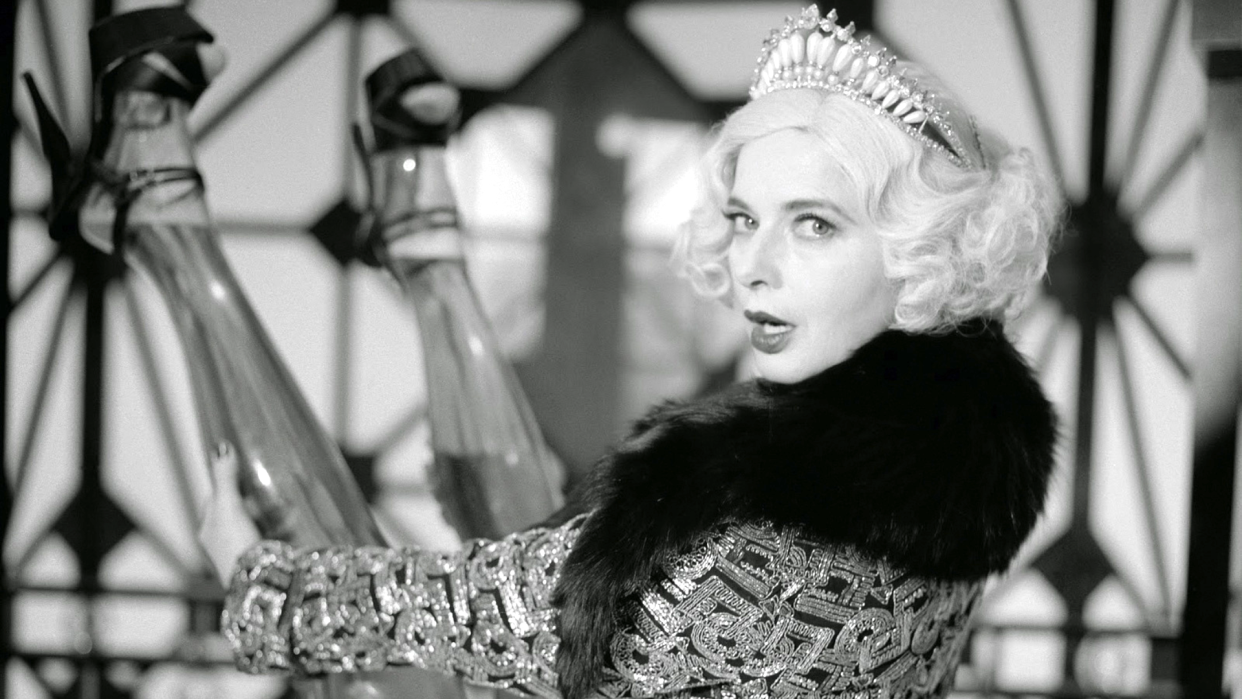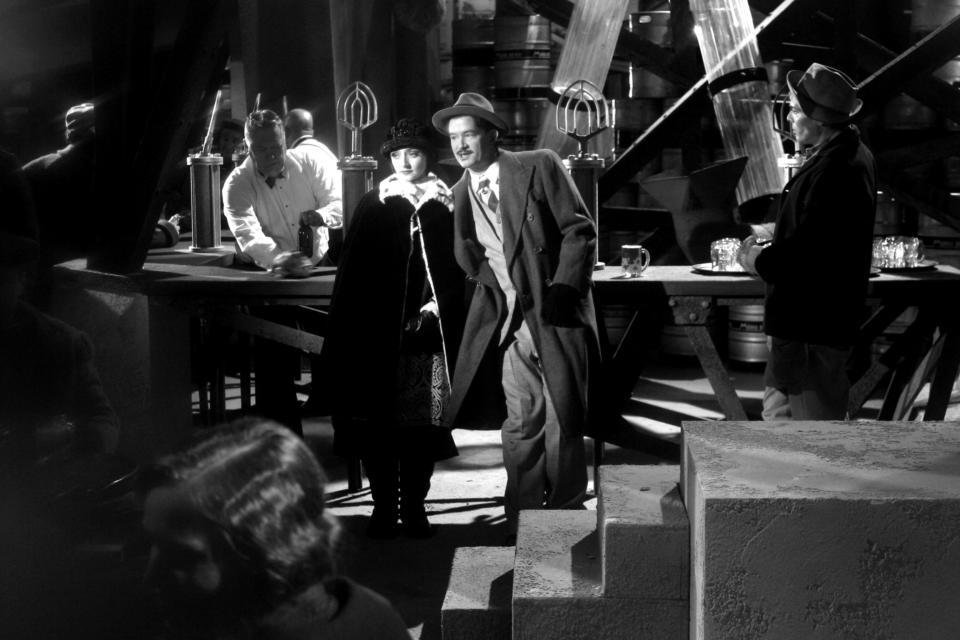Isabella Rossellini Is a Double-Amputee with Beers for Legs in ‘The Saddest Music in the World’


On Friday nights, IndieWire After Dark takes a feature-length beat to honor fringe cinema in the streaming age.
First, the spoiler-free pitch for one editor’s midnight movie pick — something weird and wonderful from any age of film that deserves our memorializing.
More from IndieWire
Then, the spoiler-filled aftermath as experienced by the unwitting editor attacked by this week’s recommendation.
The Pitch: Can You Spoil Something This Surreal?
Few experiences surpass stumbling onto a jaw-dropping moment in film totally unspoiled. The big twist in “One Cut of the Dead.” The Fern Mayo reveal in “Jawbreaker.” Top to bottom, every second of “Titane.” These are scenes across varying genres and eras that live in my bones as electric moments I didn’t expect to see, but that reminded me why I whole-heartedly love the movies when I did. Hence, this column’s spoiler-free/spoiler-filled bifurcation.
Guy Maddin’s “The Saddest Music in the World” contains one such moment, and though I’m remiss to rob you of your chance to experience it sans informational primer, you might not see the hidden gem arthouse joint otherwise. Plus, it occurs only 15 minutes into the running time, appears plainly on at least one version of the poster, and is easily the main thing this movie is known for. So, that’s fine. Against my better judgment, I’ll just come out and say it. One… two… Isabella Rossellini has beers for legs.
Yes, the Muskeg Beer Baroness of Depression-era Winnipeg, Lady Helen Port-Huntley, is a double-amputee and she’s got two beautiful, tall glasses of beer for legs. They’re golden, statuesque, with room for foam, and attached to the Italian beauty who ran away with “Blue Velvet.”
This 2003 low-budget oddity from the beloved Canadian filmmaker behind the slightly later “My Winnipeg” has a slew of barriers standing between it and contemporary streaming audiences. Set in the “world capital of sorrow” in a fabulously fabricated version of 1933, the fantastical film is black-and-white with the same surreal style that makes some movies of the early 20th century feel transported from another planet. It’s also crammed with baffling homages to the German expressionist movement that require almost total buy-in to appreciate, and a self-propelling logic that makes acutely breakable, alcoholic prosthetics seem next to normal.

We open on a greasy-haired New Yorker named Chester Kent (Mark McKinney), glibly poking fun at a fortune teller while his tapeworm-ridden, nymphomaniac girlfriend Narcissa (Maria de Medeiros) jerks him off through a cut-out pocket in his slacks. At first blush, they’re just two fat-cats traveling and covertly masturbating across the Great White North. But when Lady Port-Huntley announces she’s holding a global music competition to promote her beer, and offering $25,000 prize money to whoever produces the saddest music in the world, Chester is as eager as anyone to compete.
His arrival in the baroness’s office, announced by her sublimely nonplussed assistant as the “American Ambassador to Sadness,” soon reveals a sordid past explaining just what happened to the Lady’s legs — and how exactly Chester was involved. What follows is a rich pour of period homage and campy spectacle that’s intoxicatingly self-serious but funny the whole way through, from the antics of the sensitively skinned Serbian soloist Roderick (Ross McMillan) to a human-sized beer pool that’s got to be swimming in bacteria.
If just that tiny taste wet your midnight movie whistle, “The Saddest Music in the World” will satisfy even with that necessary spoiler. Cowritten by Maddin and George Toles, based on a story by Kazuo Ishiguro, this hidden gem is a ridiculous concept explored to its most delightful extremes and worth recommending whenever and wherever it’s on tap. —AF
The Aftermath: “Bloodsport: The Musical” Has Finally Arrived
The widespread popularity of melodramas that swept over American theatre at the tail end of the 19th century was a distinct product of its time that could never be fully replicated. Audiences’ interest in feature-length narrative storytelling was rising at the exact moment that artists and technicians were figuring out ways to elevate stagecraft into something truly extraordinary. Lavish, lifelike sets and ornate costumes created backdrops for twisty stories about heroes falling in love despite the best efforts of scheming villains. It represented something of a sneak preview of the Hollywood films that would begin to delight audiences in subsequent decades, while making playwrights like David Belasco very rich.
The trend eventually collapsed when psychology became more popular, as playwrights began using the stage to probe the depths of individual characters’ psyches instead of painting epic tableaus of right and wrong. Like all widespread shifts in consumer tastes, it was probably inevitable. But maybe it wasn’t. Maybe beer legs could have saved the American melodrama.
I went into “The Saddest Music in the World” completely blind, save for the fact that Foreman told me something insane happens around the 15 minute mark. Dear readers, she was not wrong. As you know by now, Guy Maddin’s satirical melodrama truly kicks into high gear upon the reveal that Isabella Rosselini’s conniving beer heiress Lady Helen Port-Huntley is a double amputee who walks on glass legs made entirely of beer.

It’s the kind of spectacle that could have only emerged out of contemporary midnight movie culture, but I could only think of what a paying audience of 1890s theatergoers would have thought. The entire 20th century of American narrative drama as we know it could have taken a wildly different term if we had exposed fans of 1800s Romanticism to the idea that any limb can theoretically be filled with any beverage.
But I’m ultimately relieved that this film came out after 1988, because it was able to fulfill my lifelong dream of watching a musical equivalent of “Bloodsport.” Seeing all of these countries send their most melancholy balladeers to make the world cry felt eerily similar to the Kumite, the underground fighting tournament that Jean-Claude Van Damme enters in the infamous action flick. But while the art of beating the shit out of people hasn’t changed that much, sad music sure has. As someone who grew up with the ability to stream Phoebe Bridgers’ discography at any given moment, the idea that a very slow version of “Skip to My Lou” was ever considered one of the saddest tunes on the planet is uproariously funny to me.
Beer legs and competitive dirges aside, “The Saddest Music in the World” reminded me a lot of “Twin Peaks,” both in terms of their weird subversions of outdated genres (theatrical melodramas and TV soap operas), their folksy humor (I’ll be saying “I’ve got schmaltz routines that could wring sobs from a moose” for years to come!), and their complex web of subplots. While the love triangle between the Lady and the Kents will always take center stage, all of the Prohibition-induced scheming and the hilarious international entries in the world’s saddest music contest make it the kind of film that is worth revisiting multiple times. If you’re still unsure about what to do with the last 60 seconds of your Friday night, crack open a cold Muskeg Beer and prepare to get weird — while being grateful that you’re not literally standing on six gallons of it. —CZ
Those brave enough to join in on the fun can stream “The Saddest Music in the World” on AMC+. IndieWire After Dark publishes midnight movie recommendations at 11:59 p.m. ET every Friday. Read more of our deranged suggestions…
‘A Town Called Panic’: The Best Stop-Motion Movie About Bulk Brick Sales to Ever Emerge from Belgium
Treat Yourself This Halloween Weekend: Bask in the Bro Dude-ness of ‘Dude Bro Party Massacre III’
Best of IndieWire
Where to Watch This Week's New Movies, from 'The Marvels' and 'Dream Scenario' to 'The Killer'
The Best Thrillers Streaming on Netflix in November, from 'Fair Play' to 'Emily the Criminal'
Sofia Coppola Movies, Ranked: 'Priscilla,' 'The Virgin Suicides,' 'Marie Antoinette,' and More
Sign up for Indiewire's Newsletter. For the latest news, follow us on Facebook, Twitter, and Instagram.

 Yahoo News
Yahoo News 
